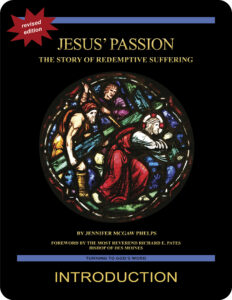blasphemy
 What does it mean to blaspheme or to commit blasphemy? One of the most difficult passages in the New Testament is the Gospel According to Luke 12:10 (NABRE): “Everyone who speaks a word against the Son of Man will be forgiven, but the one who blasphemes against the Holy Spirit will not be forgiven.” What causes difficulty with this passage is the notion that we could commit a sin that is unforgivable, and the difficulty is further enhanced by a general misunderstanding of the specific sin to which Jesus is referring.
What does it mean to blaspheme or to commit blasphemy? One of the most difficult passages in the New Testament is the Gospel According to Luke 12:10 (NABRE): “Everyone who speaks a word against the Son of Man will be forgiven, but the one who blasphemes against the Holy Spirit will not be forgiven.” What causes difficulty with this passage is the notion that we could commit a sin that is unforgivable, and the difficulty is further enhanced by a general misunderstanding of the specific sin to which Jesus is referring.
The Greek word used in this text is Βλασφημέω (blasphemeo), which means “to slander” or “to speak ill of.” This word and its derivatives are used in many forms throughout the New Testament to refer to God and others, so it’s clear that blasphemeo is not a highly technical term used only to refer to the unforgivable sin. Due to its other usages, it’s fair to conclude blaspheming against the Holy Spirit in this context is slandering or speaking ill of the Holy Spirit. Note that this is not cursing God but deliberately trying to damage God’s reputation.
To get to the bottom of what’s going on in this passage it should also be considered that in the first clause, “Everyone who speaks a word against the Son of Man,” the word blasphemeo is not used. The English translation of “speak a word against” is a literal rendering of the Greek. The difference in word choice suggests a very interesting conclusion—apparently, speaking against Jesus doesn’t count as blasphemy.
It should be simple enough for us to see why blaspheming against the Holy Spirit would be an unforgivable sin. By damaging the reputation of God, we lead people away from him and so do harm to other souls. God doesn’t care about his reputation in and of itself, but God does care about each and every one of us, and it’s easy to see how anything we do to cause the loss of another soul would be reckoned against us. Jesus’ audience in the Gospel According to Luke would have had a relatively easy time accepting this reality as well.
The marvel of what Jesus is saying and the great difficulty of this passage is not that there is an unforgivable sin but rather that Jesus, by his own authority, annuls blasphemy against him. This is not a truth easily grasped, but we see it manifested again at Calvary in the Gospel According to Luke 23:34 (NABRE), which records Jesus saying: “Father, forgive them, they know not what they do.” The question this text raises, then should not be “What could be an unforgivable sin?” but rather “Why would Jesus pardon someone speaking ill of him?” This question concerns the great mystery of God. Any answer is far beyond the scope of a linguistic analysis of the biblical text.
related topic: anathema; hypocrites; sin
you also may like our free Lenten study of Jesus’ Passion (digital only)
 Jesus’ Passion: The Story of Redemptive Suffering is a five-lesson Catholic Bible study offering an in-depth look at the biblical foundations of the movie The Passion of the Christ. This revised study, which has been granted an imprimatur, contains all of the original material of the 2004 edition as well as many new features in an improved, reader-friendly format. Click on the book’s cover to view the introduction. Free digital lessons of Jesus’ Passion: The Story of Redemptive Suffering are available on the website during Lent.
Jesus’ Passion: The Story of Redemptive Suffering is a five-lesson Catholic Bible study offering an in-depth look at the biblical foundations of the movie The Passion of the Christ. This revised study, which has been granted an imprimatur, contains all of the original material of the 2004 edition as well as many new features in an improved, reader-friendly format. Click on the book’s cover to view the introduction. Free digital lessons of Jesus’ Passion: The Story of Redemptive Suffering are available on the website during Lent.
 Click on the picture of the statue of Moses with horns (above) to learn more about Lost in Translation. A new entry is archived each Monday. Contact us to receive Lost in Translation by email every week. You may use any of the contact links on our website to ask Matthew a question.
Click on the picture of the statue of Moses with horns (above) to learn more about Lost in Translation. A new entry is archived each Monday. Contact us to receive Lost in Translation by email every week. You may use any of the contact links on our website to ask Matthew a question.

Leave a Reply
You must be logged in to post a comment.